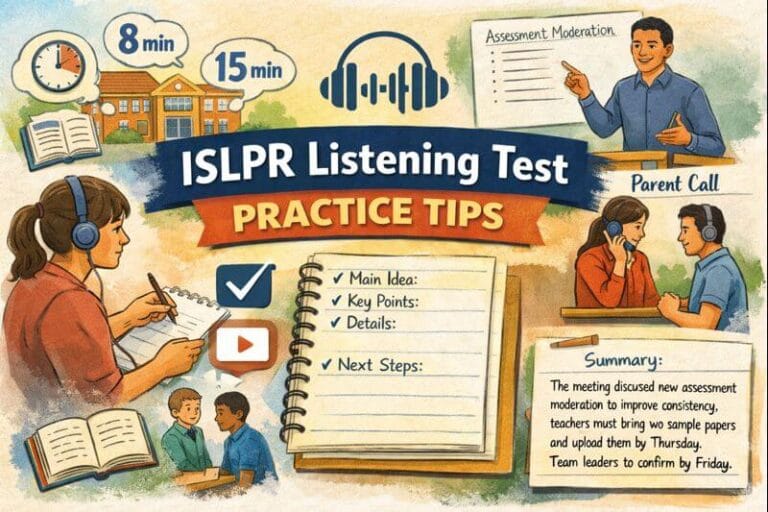One of the most important aspects of being a student is knowing how to convey your arguments in form of an essay. Essay writing is a crucial skill that helps students and professionals convey their thoughts in a structured, clear, and persuasive manner.
Whether it’s an academic assignment, a scholarship application, or a blog article, the ability to write an essay effectively ensures that your ideas are communicated with clarity and impact. Knowing the nuances of this skill not only enhances your academic performance but also sharpens your critical thinking and analytical abilities.
In this comprehensive guide, I will take you through the entire essay-writing process, from understanding the question to refining your final draft into a polished and cohesive piece of writing.
Step 1: Understanding the Topic
Understanding the topic is the foundation of any successful essay. Without a clear grasp of the subject, your essay may lack focus and coherence. To illustrate this point, imagine being asked to write an essay on “The impact of technology on education.” If you misunderstand the question and focus solely on the benefits of smartphones, you’ll miss broader aspects like online learning, digital literacy, and virtual classrooms.
Let me break down how to properly approach this step with a practical example and an illustration:
Example:
Suppose your question is: “Discuss the pros and cons of social media for teenagers.” Start by identifying and breaking down key terms in the question such as “pros and cons,” “social media,” and “teenagers.”
Doing this will help you to understand that your task is to present a balanced view by highlighting both positive and negative impacts of social media on this specific age group.
You need to consider the process of writing an essay as constructing a building beginning with words, moving to sentences, paragraphs and finally the whole text. The question serves as the blueprint, guiding what kind of structure you need to build. If you overlook parts of the blueprint, your building may collapse, just as your essay may fall apart without a clear understanding of the task. Clarifying the objective ensures that you lay a strong foundation for your essay by knowing exactly what is expected.
Another example can be where you are asked to “compare and contrast the themes of ambition in two literary works,” you should focus on identifying similarities and differences in the portrayal of ambition rather than summarising the plot. Key terms such as “compare and contrast” and “themes” guide the approach and scope of your essay.
To visualise this, think of the question as a set of instructions for assembling furniture. Missing a step or misinterpreting the guide can result in a poorly assembled piece. Similarly, overlooking specific instructions in the question can lead to an essay that is incomplete or irrelevant. Therefore, carefully analysing the question ensures you include all necessary components and meet the essay’s objectives.
Clarify the Objective
In clarifying the objective of the essay, you need to ask yourself: What is the purpose of this essay? Are you trying to inform, persuade, or entertain your audience?
- If any part of the question is unclear, seek clarification from your instructor or research the topic further. For instance, if the question asks you to “analyse the causes of climate change,” but you are unsure whether to focus on natural causes, human activities, or both, it’s essential to ask for specific guidance.
- Additionally, you can consult textbooks, academic articles, or credible websites to gain a deeper understanding of the subject. Imagine the question as a puzzle where each piece needs to fit perfectly; clarifying uncertainties ensures that your essay aligns with the requirements and addresses the key questions effectively.
Step 2: Planning the Essay
To write a good essay, you need to start with good planning. Planning ensures that your ideas are well-organised and that your writing flows logically from one section to the next. Without a proper plan, you may find yourself drifting off-topic or struggling to connect ideas coherently.
How Planning Improves Clarity
Imagine being asked to write an essay on “The importance of renewable energy sources.” Without planning, you might start by discussing solar energy, then abruptly jump to wind power without a clear connection between the two. By creating an outline, you can decide to first introduce renewable energy, then explore different types systematically, ensuring each section flows logically.
Think of planning your essay as mapping out a road trip. Before you start driving, you need to decide your destination (your thesis), the key stops along the way (main points), and the best route to take (logical flow of ideas). Just as a roadmap helps prevent you from getting lost, a well-structured plan helps ensure your essay stays on track and reaches a clear conclusion.
Brainstorm Ideas
- Use mind mapping, listing, or freewriting techniques to generate ideas related to the topic.
- Group related ideas together to form potential paragraphs.
Conduct Research
- If your essay requires evidence or data, gather information from reliable sources such as academic journals, books, and reputable websites.
- Take detailed notes and keep track of your sources for citation purposes.
Create an Outline
An outline acts as a roadmap for your essay, ensuring logical flow and coherence. Without an outline, it’s easy to lose focus or repeat ideas. A well-crafted outline helps you organise your thoughts and structure your essay effectively.
Outlining to Stay Organised
Let’s say you are writing an essay on the topic: “The effects of pollution on marine life.” Without an outline, you might start with the impact of plastic pollution, jump to oil spills, and then back to discussing plastic again. This approach can confuse the reader. By outlining first, you might structure your essay in different sections as follows:
- Introduction: Present the topic and thesis statement.
- Body Paragraph 1: Discuss plastic pollution and its impact on marine species.
- Body Paragraph 2: Explain the effects of oil spills on ocean ecosystems.
- Body Paragraph 3: Explore how chemical waste affects marine habitats.
- Conclusion: Summarise key points and restate the thesis.
Let me make a point here that, you may need to write more paragraphs if need be. So, the above outline may look as follows:
- Introduction: Present the topic and thesis statement.
- Body Paragraph 1: Discuss plastic pollution and what constitutes it.
- Body Paragraph 2: Discuss the of impact plastic pollution on marine species.
- Body Paragraph 3: Explain what oil spills are and most likely oils that can pollute the ocean ecosystems.
- Body Paragraph 4: Explain the effects of oil spills on ocean ecosystems.
- Body Paragraph 6: Explore what chemical waste are.
- Body Paragraph 6: Explore how chemical waste affects marine habitats.
- Conclusion: Summarise key points and restate the thesis.
Step 3: Drafting the Essay
Once your outline is ready, you can begin drafting your essay. Focus on getting your ideas down without worrying too much about perfection at this stage.
Writing the Introduction
- Start with a hook to grab the reader’s attention. This could be a quote, a question, or an interesting fact.
- Provide some background information to give context to your essay.
- End the introduction with a clear thesis statement that outlines the main argument or purpose of the essay.
Developing Body Paragraphs
Each body paragraph should focus on a single main idea that supports your thesis. Here’s how to structure each paragraph:
- Topic Sentence: Clearly state the main idea of the paragraph.
- Supporting Evidence: Use facts, examples, or quotes to back up your point.
- Explanation: Explain how the evidence supports your thesis.
- Transition: End with a sentence that smoothly transitions to the next paragraph.
If you want a detailed explanation of how to write a paragraph, read this article where I have outlined detailed information on paragraph writing.
Crafting the Conclusion
- Summarise the key points discussed in the body paragraphs.
- Restate the thesis in different words.
- End with a final thought, recommendation, or call to action.
Step 4: Revising the Essay
Revising is a crucial part of the writing process. It allows you to improve the content and structure of your essay.
Check for Content
- Ensure that your essay addresses the question fully.
- Remove any irrelevant information and add necessary details to strengthen your argument.
Review Structure and Coherence
- Make sure your essay has a logical flow, with each paragraph connecting smoothly to the next.
- Use appropriate transition words and phrases to enhance readability.
Enhance Clarity
- Simplify complex sentences without losing meaning.
- Ensure that your ideas are clearly expressed and easy to understand.
Step 5: Editing and Proofreading
After revising your essay, it’s time to focus on grammar, spelling, and formatting.
Grammar and Punctuation
- Correct any grammatical errors, such as subject-verb agreement and sentence fragments.
- Check for punctuation errors, including misplaced commas and missing periods.
Spelling
- Use a spell checker or manually proofread your essay to catch any spelling mistakes.
Formatting
- Ensure your essay follows the required style guide (e.g., APA, MLA, Chicago).
- Pay attention to font sise, margins, and line spacing.
Citations and References
- Double-check that all sources are properly cited in the correct format.
- Include a reference list or bibliography if required.
Conclusion
Learning how to write an essay is a valuable skill that improves critical thinking, organisation, and communication. By following the steps outlined above—understanding the topic, planning, drafting, revising, and editing—you can produce clear, coherent, and compelling essays. Remember, practice makes perfect. The more essays you write, the more confident and proficient you will become in expressing your ideas effectively.
Whether you are a student preparing for exams or a professional working on reports, mastering essay writing will serve you well in many aspects of life. Start applying these steps today, and see how much your writing improves!
If you want to become an expert in essay writing, consistency is key. Practice regularly, seek feedback, and always be willing to learn and improve.







